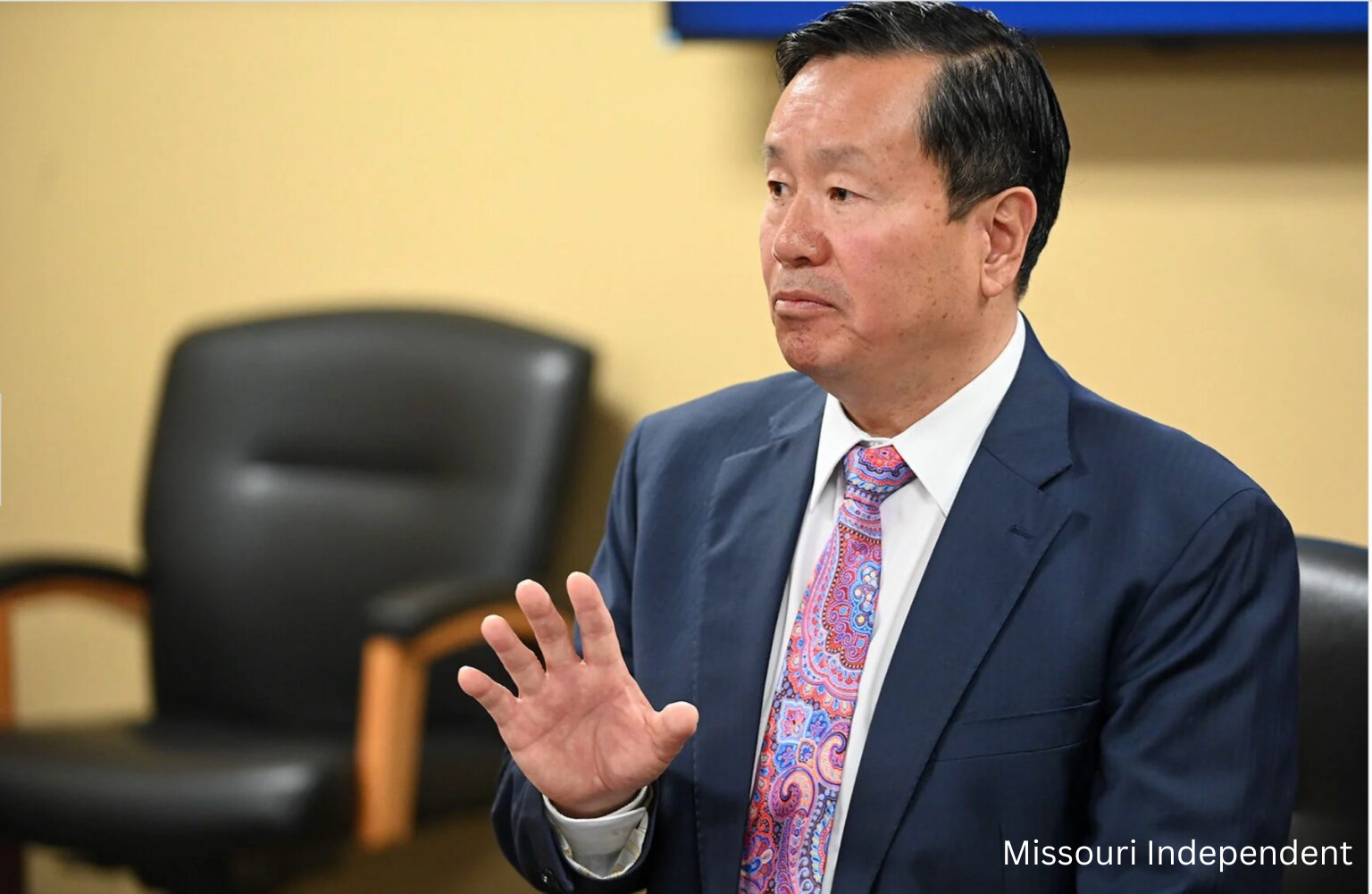Calls for urgent action against crime in Columbia have intensified after the tragic death of a college student in a weekend shooting. University of Missouri System President Mun Choi’s demand for a coordinated campaign to combat violence has received support from local and state leaders, though specific plans remain unclear.
A City in Mourning
The latest tragedy struck early Saturday morning on East Broadway when gunfire erupted in a crowd, killing Stephens College student Aiyanna Williams and injuring two others. Williams, who later died at University Hospital, has become the face of a growing crisis that residents and leaders say cannot be ignored.
Her family, devastated by the loss, released a statement on Facebook expressing gratitude for the community’s support while requesting privacy. “We are grieving our daughter. We’re not furthering anyone’s agenda,” the post read, urging people not to politicize her death.
Meanwhile, authorities charged 19-year-old Misael Covarrubias in connection with the incident. He faces multiple counts, including first-degree assault, armed criminal action, and unlawful use of a weapon. Covarrubias remains in custody at Boone County Jail, with hearings scheduled in October and November.
Leadership Reactions
President Choi, speaking at Jesse Hall, declared that “there is a crime crisis in Columbia,” calling on the city’s mayor, police chief, and prosecuting attorney to take both immediate and long-term measures. His remarks underscored the urgency of the situation but left open questions about how such a campaign would take shape.
Mayor Barbara Buffaloe responded by announcing the formation of a community task force dedicated to addressing crime and reducing violence. On Monday, she met with Choi, Columbia Police Chief Jill Schlude, MU Police Chief Brian Weimer, and other leaders to discuss next steps.
In a later Facebook post, Buffaloe revealed that Columbia had recorded 58 confirmed gunfire incidents so far this year—down from 105 in the same period last year—but emphasized that policing alone would not stop violence. “Despite proactive efforts, senseless gun violence still occurred, even with officers in the area,” she wrote.
Governor Mike Kehoe also expressed concern, confirming through his office that he had been in contact with local leaders and pledging to consider state-level support.
City Council Divided on Approach
Reactions among Columbia City Council members showed broad agreement on the seriousness of the problem but differences on solutions.
Third Ward Councilperson Jacque Sample praised the police department, saying officers responded swiftly on Saturday and should not be blamed for failing to predict criminal behavior. She voiced support for closer collaboration between Columbia Police and MU Police.
Fifth Ward Councilperson Don Waterman agreed that a stronger police presence could deter some crime but warned that it was no guarantee. “You could have a cop on every corner; I don’t know that it’s absolutely going to prevent it,” he said, while still backing Police Chief Schlude’s call for 50 additional officers in coming years.
Fourth Ward Councilperson Nick Foster, however, stressed that policing alone cannot resolve deeper issues. “We are not going to police our way to eliminating violent crime,” he said, pointing to root causes like poverty, generational trauma, and lack of access to mental health resources. Foster also defended community-based programs, such as the Office of Violence Prevention, as essential parts of any long-term solution.
Tensions Over Policy Criticism
Choi’s suggestion that certain city policies may be “attracting criminals” drew skepticism from some council members. Sample urged clarity, saying that if specific policies are a concern, they should be named and examined transparently. Foster went further, calling the remark “disappointing” and warning against framing city leadership as responsible for crime trends.
First Ward Councilperson Valorie Carroll cautioned against rushing into a politically charged debate while families are still grieving. “It feels rather sudden to me,” she said. “I’m afraid that we have moved past this too quickly into a politically charged narrative in a way that does a disservice to the communities involved.”
The Numbers Debate
Statistics themselves have also fueled debate. Choi cited police figures showing a 40% rise in property crimes, including burglary, larceny, and vehicle theft. Yet the city’s crime dashboard showed property crime had actually decreased compared with the previous year. Council members pointed out that violent crime was up by 6%, even as firearm-related incidents had fallen by nearly 30%.
The discrepancy has highlighted the challenge of relying on data that can be interpreted differently depending on the time frame or category. Still, most leaders agreed that the perception of crime in Columbia—and the fear it creates—is a pressing problem regardless of the statistics.
Balancing Safety and Community Support
Beyond policy and policing, leaders emphasized compassion for victims and their families. Sample reminded the community to center the Williams family in their grief: “The focus needs to really be on the family that lost their loved one. This is not over for them, and the community needs to show love and comfort.”
Columbia College Senior Vice President Sandra Hamar also expressed solidarity with students across the city. “College students deserve to feel safe both on campus and throughout our city,” she wrote, pledging support for Choi’s efforts to seek meaningful change.
Looking Ahead
As Columbia grapples with both grief and uncertainty, the city now faces the difficult task of balancing short-term enforcement with long-term solutions. The tragedy of Aiyanna Williams has intensified calls for action, but how leaders choose to respond—through more officers, new policies, community programs, or a mix of all three—remains to be seen.
What is clear is that residents and students alike want safety restored. Whether through city initiatives, state partnerships, or grassroots efforts, Columbia’s leaders face growing pressure to deliver real results in the wake of yet another senseless act of violence.
%20(4).png)




.jpg)
.png)
.png)
.png)
